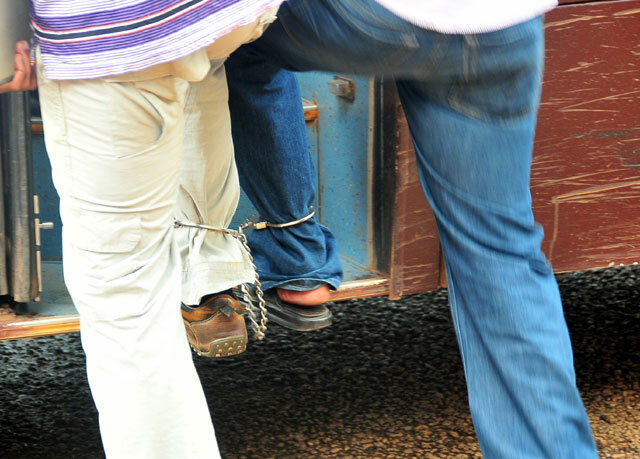Terror suspects challenge extradition to Uganda
JUSTICE Alfonse Owiny-Dollo of the High Court will on Friday rule whether to allow the July 11, 2010 terror suspects go to the Constitutional Court over their extradition to Uganda.
By Hillary Nsambu
JUSTICE Alfonse Owiny-Dollo of the High Court will on Friday rule whether to allow the July 11, 2010 terror suspects go to the Constitutional Court over their extradition to Uganda.
This followed submissions by Senior Principal State Attorney Joan Kagezi , assisted by State Attorney Lino Anguzu. The attorneys strongly opposed the men’s application to go to the Constitutional Court, saying that in the first place they should have presented their application where they filed their petition.
The attorney also submitted that the application was misconceived as there is nothing for the Constitutional Court to interpret about. For the trial court to stop the proceedings, the suspects must have obtained a stay from the Constitutional Court making the directive.

CHAINED: Suspected terrorists board the Luzira Prisons bus at the High Court after their hearing was adjourned. Photo: Enock Kakande
“The mere filing of the constitutional petition does not mean that the trial court should automatically stop the proceedings against the suspects. It should be the Constitutional Court to stay the proceedings after having been satisfied that the applicants have strong issues to interpret about. So, we request that the court rejects the application and proceed with the hearing of the case,” Kagezi requested.
They complain that they were unconstitutionally extradited from Kenya and Tanzania because the right procedure was not followed before they were brought into Uganda. The court that is also trying them was not constitutionally constituted and as such it should not try them.
Suspected terrorists leaving the High Court.
They contended that it was also unconstitutional for the Chief Justice to establish the International War Crime Court.
On Tuesday, eight of the 11 remaining terror suspects arraigned for the murder of over 70 revelers, who died in bomb blasts that went off while they were watching the final World Cup match at Kyaddondo Rugby Club and the Ethiopian Village Restaurant in Kampala on the day in question.
The Somali notorious rebel group claimed responsibility after the blast at the two popular rendezvous.
A team of criminal lawyers, who included Peter Mukidi Walubiri, Caleb Alaka, Duncan Ondimu, John Francis Onyango and Julius Galisonga represented the suspects.
The lawyers reiterated their submissions insisting that there are pertinent issues of law that required interpretation by the Constitutional Court before they could proceed with the trial.
Initially, 19 suspects were arrested in different places in Uganda, Kenya and Tanzania in in connection with the murder. However, some were released for lack of evidence against them and have since returned to Kenya.
Two Ugandans, Idiris Nsubuga and Mahmoud Mugisha, who upon and after arrest pleaded and maintained their guilt to the charges, were sentenced to imprisonment where they are serving 25 and five years goal from last September.